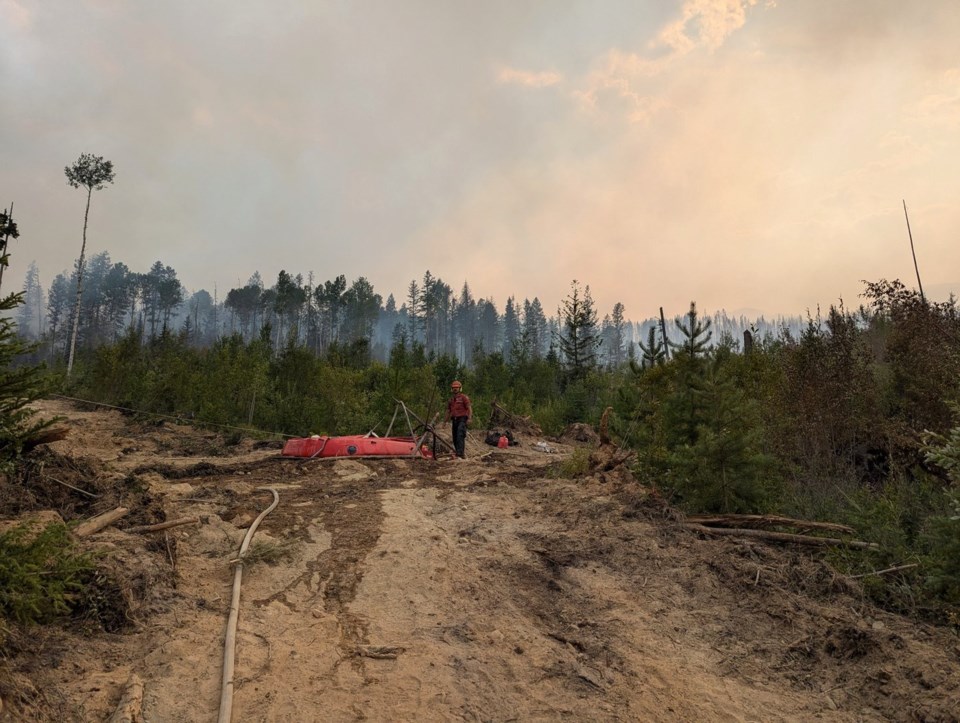SLOCAN, sa���ʴ�ý — Jessica Lunn, mayor of Slocan in British Columbia's Kootenay region, said she drove along Highway 6 this week to survey the damage done by a nearby complex of fires that forced the evacuations of hundreds and destroyed homes along the road.
Lunn, who said attention was now turning to recovery, called the losses "heartbreaking," although she couldn't see the damaged buildings from the newly reopened section of highway.
"There were lots of areas along Highway 6 where you could see the burnt trees," she said on Wednesday. "But in terms of the actual homes and structural loss, those were up like more rural driveways, so I wasn't able to see."
The Regional District of Central Kootenay said on Monday that the Komonko Creek blaze, which is one of more than 100 fires burning in the southeast region of the province, had destroyed or damaged at least five homes and 13 other structures along Highway 6.
That fire is classified as one of four wildfires of note in sa���ʴ�ý, meaning it is highly visible with the potential to pose a threat to public safety.
It is part of the Slocan fire complex that has also destroyed or damaged five other cabins and outbuildings on the west side of Slocan Lake.
The regional district downgraded an evacuation order on Monday that had been put in place on July 28 for several hundred residents of the Village of Slocan and the surrounding area.
Lunn said residents were relieved and excited to return home after being displaced for about two weeks. She noted that the smoke was initially "super thick" when they arrived, but had lifted significantly by Wednesday.
"For the first time, I'm able to get more of a sense of what's burned and what's still standing," she said. "There's definitely still a lot of hot spots."
She said the community remains on evacuation alert and, with nearby fires still burning, residents remain prepared to leave if necessary.
"For now, we're really focused on recovery," Lunn said.
The BC Wildfire Service said Wednesday that respite may be around the corner with thundershowers expected to bring some much-needed moisture to areas of the province where hundreds of fires are burning, including in the Kootenays.
It said in an update that the moisture will likely arrive in the Rocky Mountain Trench in the northeast, as well as the Southeast Fire Centre.
Fire information officer Morgan Blois said that rain had not yet arrived for the Komoko Creek blaze. But she said about 10 millimetres of rain is forecast this weekend.
"It is quite typical to see thunder and lightning build up," she said. "It's actually not localizing over this incident, so I'm not really seeing strikes on this fire, even though sometimes the forecast has shown that there's a possibility. At this point, that pattern is expected to continue."
There were about 400 fires burning in British Columbia Wednesday, down slightly from the day before, with 154 out of control.
In the Prince George Fire Centre in sa���ʴ�ý's northeast, about 170 fires are burning.
The wildfire service says there have been 256 new starts across sa���ʴ�ý in the last seven days, with about 82 per cent believed to have been caused by lightning.
— By Brieanna Charlebois in Vancouver
This report by The Canadian Press was first published Aug. 14, 2024.
The Canadian Press



